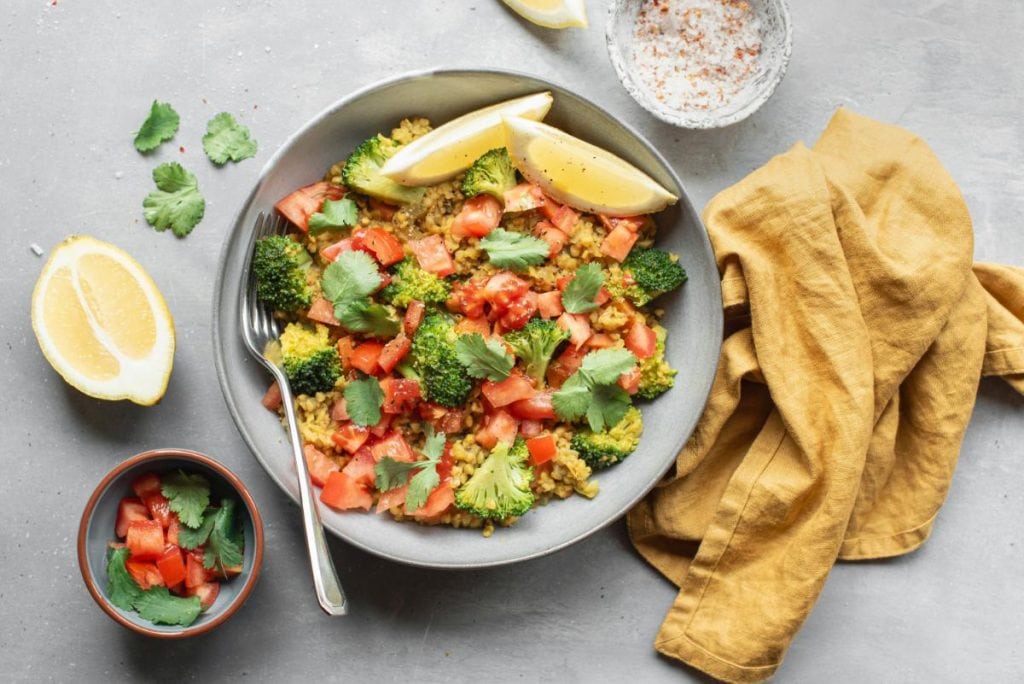Eating plant‑based meals isn’t just a passing trend—it’s a lifestyle that taps into nourishing foods, sustainability, and everyday wellness. Here’s a refined exploration of why incorporating more fruits, vegetables, legumes, nuts, whole grains, and other plant based meals into your diet can transform your daily life.

Why Plant‑Based Meals Matter
1. Nourishment from Nature
Plant-based diets are naturally rich in fiber, vitamins, minerals, and phytonutrients. Whole foods like leafy greens, colorful vegetables, beans, and nuts deliver antioxidants and protective compounds that support your immune system, aid digestion, and promote overall cellular health.
2. Balanced Energy Levels
Meals composed of whole grains, legumes, and vegetables release energy steadily. This slow, sustained digestion helps you avoid energy crashes and maintain alertness throughout your day, whether you’re working, exercising, or spending time with family.
3. Digestive Comfort and Gut Health
Dietary fiber supports a healthy gut microbiome. By feeding beneficial bacteria in your digestive system, plant-centric eating can reduce bloating, regulate bowel movements, and improve gut resilience.
Around the Clock: Real-Life Benefits
Morning
Starting your day with plant-based options—like oatmeal topped with fruits and seeds, a vegetable-packed smoothie, or avocado toast—kickstarts hydration, supplies clean energy, and stabilizes blood sugar. The fiber and healthy fats help you feel full longer, reducing mid-morning cravings.
Midday
Lunchtime salads, grain bowls, and veggie wraps offer a colorful mix of textures, tastes, and nutrients. Think quinoa with roasted vegetables and chickpeas, or a lentil wrap with fresh greens. These meals are easy to prep ahead and keep you feeling satisfied and focused through the afternoon.
Afternoon Snacks
If an afternoon slump hits, reach for roasted nuts, fresh fruit, or veggie sticks with hummus. These small but nutrient-dense snacks recharge your mind and body without relying on refined sugars or processed snacks.
Evening
A dinner of hearty plant stews, casseroles, stir-fries, or pasta with veggies gives you fiber, protein from beans or tofu, and essential micronutrients. It’s a comforting and easy way to unwind without feeling sluggish before bed.
Beyond Nutrition
1. A Sustainable Choice
Plant-based meals generally require fewer resources—land, water, and energy—than meals centered on animal products. Choosing more plant-centric dishes contributes to lower greenhouse gas emissions, reduced deforestation, and less strain on global food systems.
2. Heart Wellness
A diet rich in whole plants supports healthy cholesterol levels, blood pressure, and blood sugar. Whole grains, nuts, legumes, and vegetables can help reduce the risk of heart disease and support cardiovascular health in the long term.
3. Weight Management
Whole, plant-based foods are generally lower in calories and higher in fiber, helping control appetite while delivering essential nutrients. A diet focused on fruits, vegetables, grains, and legumes supports steady, healthy weight maintenance or loss when combined with mindful portion sizes.
4. Better Skin and Radiance
The vitamins and antioxidants in fresh produce—like vitamin C from citrus or berries, beta-carotene from carrots and sweet potatoes, and vitamin E from nuts and seeds—support skin health, collagen production, and cell repair. Hydrating foods also contribute to clearer, more nourished skin.
Practical Tips for Going Plant‑Focused
Create Half‑Plate Habits
Use the simple rule: half your plate filled with vegetables, one-quarter with whole grains (e.g., tofu, beans, lentils), and one-quarter with healthy fats or protein-rich plants (e.g., chickpeas, nuts, seeds, tofu).
Mix Staple Ingredients
Keep pantry-friendly grains (quinoa, rice, bulgur) and legumes (lentils, chickpeas, black beans) on hand. Rotate them through different cuisines—Mexican bowls, Mediterranean plates, Indian dals, or Thai curries—for variety and ease.
Prep Once, Use Often
Cook a batch of grains or beans at the start of your week. Use leftovers in salads, wraps, or quick stir-fries. Roast a tray of veggies to top your meals or blend them into sauces and soups.
Focus on Flavor
Just because a meal is plant‑based doesn’t mean it’s bland. Use fresh herbs (cilantro, basil), spices (cumin, turmeric, smoked paprika), citrus juice, or infused oils to elevate taste. Incorporate DIY dressings or sauces—like tahini-lemon, peanut-ginger, or tomato-basil—for vibrant and satisfying meals.
Eat the Rainbow
Aim for a colorful variety: greens, reds, oranges, purples, yellows. Each color brings a unique set of nutrients and phytonutrients that support different aspects of your health. A diverse plate becomes a nutrient-rich plate.

Everyday Scenarios: Mindful, Reliable, Energizing
- Busy Morning: Whip up overnight oats with chia, almond milk, banana slices, and a drizzle of maple syrup—ready to grab and go.
- Quick Lunch: Build a mason jar salad: layers of mixed greens, quinoa, roasted vegetables, chickpeas, olives, and dressing. Shake and enjoy.
- Family Dinner: Make a veggie-loaded pasta or rice casserole with seasonal vegetables, tomatoes, spinach, and herbs—comforting, filling, and universally appealing.
- Hearty Dessert: Blend frozen bananas into “nice cream” and top with natural peanut butter or fresh berries for a creamy treat without added sugar.

Real-World Inspiration
While individual plant-based eateries offer valuable menu ideas, the broader appeal of this lifestyle lies in its adaptability. From stir-fries and soups to nut milks, flatbreads, and curries, the core highlight is how many flavors and cuisines transform effortlessly when built around whole plant ingredients. That versatility enables an everyday diet that’s nourishing, delicious, and resonant with personal taste.
Embracing plant‑based meals isn’t about perfection—it’s about mindfulness, nourishment, and sustainability woven into your everyday routine. Whether you aim to eat mostly plants or gradually increase plant‑focused meals, the benefits—from energetic and radiant days to reduced environmental footprint—are both practical and profound.
